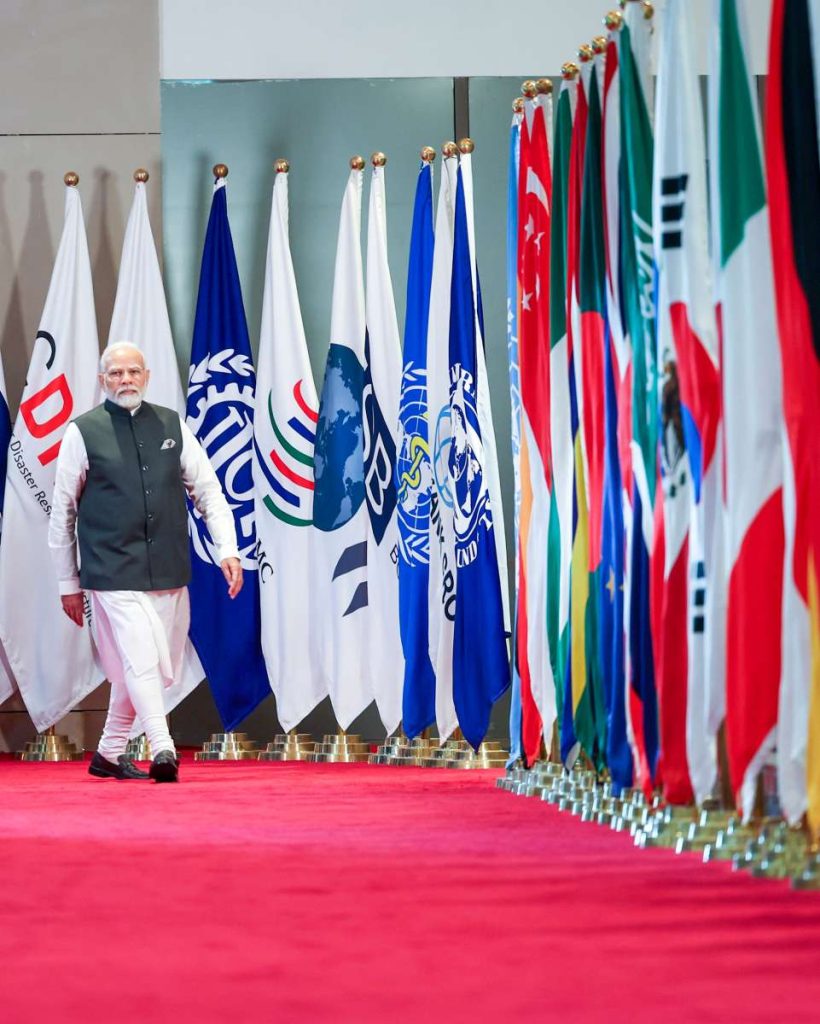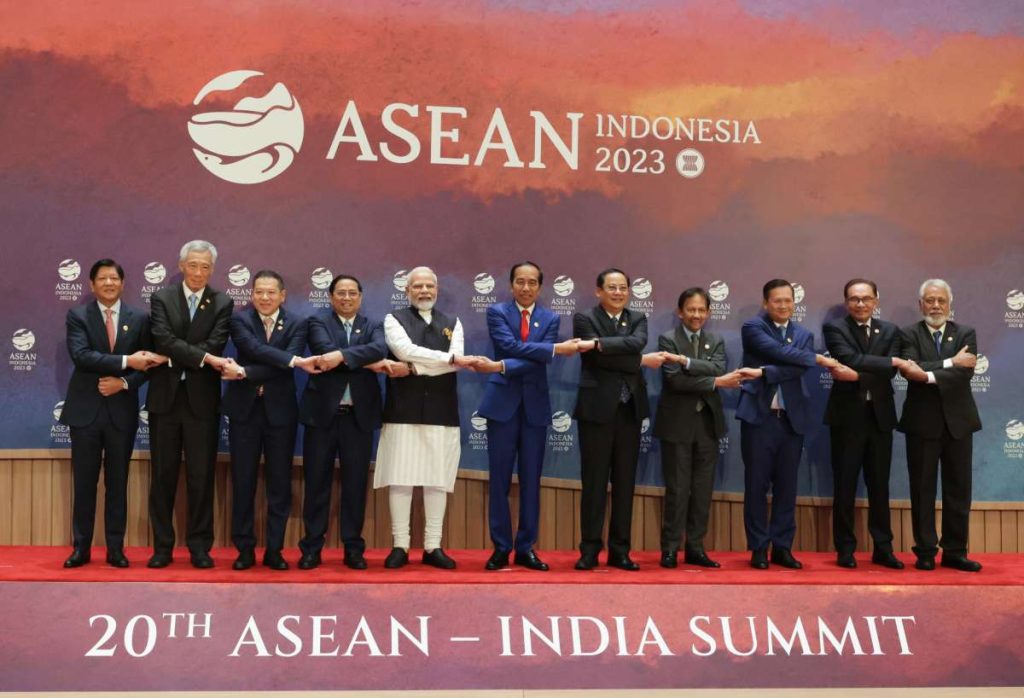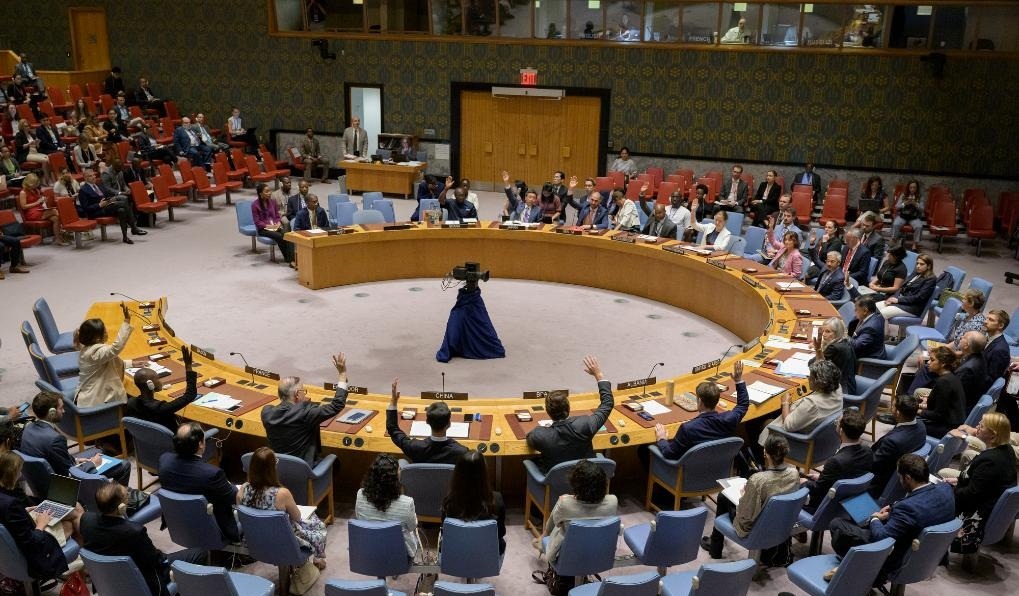
The time has come to accommodate India at UNSC. India’s global stature has risen in the past few decades owing to its economic prowess. Today, India has become the fifth largest economy in the world with a GDP of about USD 3 trillion. Moreover, by 2027 India is expected to become the third largest economy in the world, replacing Germany and Japan … writes Dr Divya Rani. This article delves into India’s compelling case for a permanent seat at the United Nations Security Council (UNSC) amidst the evolving dynamics of the 21st century. It traces the origins of the UNSC and how its membership, dominated by the P-5 nations, no longer reflects the contemporary multipolar world order.
India, as a founding member of the UN and a global heavyweight, presents an unassailable argument for permanent membership at UNSC. Nobody can ignore India’s contributions, not only as the world’s largest democracy and a burgeoning economic powerhouse but also as a provider of global public goods, particularly during the COVID-19 pandemic. The growing chorus of international support for India’s bid, including from countries that traditionally held reservations, underscores the timeliness of this endeavour. With India’s rich history of constructive global engagement and its status as the largest troop contributor to UN peacekeeping missions, India’s quest for a permanent UNSC seat is a matter of when, not if, and essential for the organisation’s legitimacy and efficacy in addressing contemporary global challenges.
The United Nations came into existence in the midst of a geopolitically charged environment in the immediate aftermath of World War II. One of the bodies formed within the ambit of the UN – the United Nations Security Council (UNSC) – tasked with the maintenance of world peace and checking any aggression by any nation in the world, became the most powerful multilateral body in the world.

At the time of its formation, the UNSC membership represented the geopolitical realities of the time. It became a club of major world powers, with finally five members called the P-5, who retained the permanent membership with veto powers, comprising – the United States of America, the United Kingdom, France, Russia and China. However, today the geopolitical realities have changed. It is no longer the world of 1945 dominated by few powers. The 21st century is witnessing a multipolar world with many countries emerging as powers to reckon with in their own right. Amongst them the one making the fastest strides is India.
There are numerous reasons that lay credence to India’s claim for a permanent seat at the UNSC. As a founding member of the UN, India has consistently supported the UN in its aims and objectives. Today, India is the largest democracy in the world and with nearly 1.4 billion population, it is the most populous country in the world. India represents more than one-sixth of humanity in the world.
An entity like the UNSC which was formed to work for peace and stability in the world so that humans can prosper is doing grave injustice by ignoring the largest representative of the most important stakeholder – the people of the world. More importantly, in doing so the UNSC itself is facing the crises of legitimacy and credibility.
India’s global stature has risen in the past few decades owing to its economic prowess. Today, India has become the fifth largest economy in the world with a GDP of about USD 3 trillion. Moreover, by 2027 India is expected to become the third largest economy in the world, replacing Germany and Japan.
As per IMF Deputy Managing Director Antoinette Sayeh, India seems to be the ‘bright spot’ in the world economy, registering healthy economic growth rates in a world afflicted by economic slowdowns and stagflation risks. India thus is playing a significant role in supporting the global economy to get back on its feet. On the economic front, India has come a long way from contributing merely 4 per cent to the global GDP at the time of its independence to contributing 15 per cent of the global GDP today. The evolution of India marks its rise as a leading power in the world.
One of the arguments that support India’s candidature as a permanent member of the UNSC is the fact that India, in alignment with the vision of ‘Vasudhaiv Kutumbakam’ – the world is one family, has emerged as the provider of public good to the world. During the COVID-19 pandemic, when the major powers were engaged in vaccine nationalism, India showcased its selflessness through the Vaccine Maitri initiative under which India distributed over 160 million doses of vaccines, medical kits, and other essential items including food grains to over 150 countries, especially the developing and least developed countries.
Moreover, India not only successfully evacuated its own nationals but also citizens from over 123 countries during the global lockdown under the Vande Bharat Mission, an unprecedented repatriation program.
India’s rise in global stature is owed to its multidimensional prowess. India became the fourth country to soft-land on the moon and the first one to land on the South Pole of the moon under the Chandrayaan-3 Mission.
Recently India also sent its first sun mission – Aditya L1 which has been successful in its mission objectives so far.

India is also gearing up for its manned mission to space with Gaganyaan. Not just in the space sector, but India is making long strides in various other fields. Take for instance the digital public infrastructure. At a time when the world is increasingly moving towards digital, India already makes 46 per cent share of the total digital transactions in the world. India’s UPI, RuPay card, and JAM trinity model, among others, have placed India as the leader in this segment.
If these attributes made India’s case stronger, India’s successful G20 presidency took it a notch above. India championed the voice of the Global South within the G20, shifting the G20 towards equity and inclusivity rather than being focused on the G7 countries and their interests. A major breakthrough came in the form of the inclusion of the African Union as the latest member of the G20 under India’s presidency. With the African Union, representing 55 African countries, as the new member, the G20 is set to become more representative in its membership.
It is also to be India’s credit to be able to come up with the joint communique given the charged geopolitical atmosphere owing to the Russia-Ukraine war. What looked seemingly very difficult till now, as other multilateral fora in the past year could not release a joint communique due to the absence of consensus, India succeeded in achieving 100 percent consensus. The New Delhi Declaration took up various issues affecting the world, especially the developing and the least developed countries, including food security and climate change. India also managed to reach a consensus on a debt relief framework for Ethiopia, Ghana, and Zambia that will help these countries tide over the economic crisis facing them. Further, the announcement of the India-Middle East- Europe Economic Corridor (IMEC), connecting South Asia, the Middle East through to Europe and the USA added further weight to India’s increasing heft in the evolving global order.
There is now unequivocal support for India’s candidature for the permanent seat at the UNSC. Even countries which have not traditionally supported India’s candidature, such as Turkiye, have now joined this chorus. Turkiye’s President Recep Tayyip Erdogan during the New Delhi G20 Summit lent his support to India as a permanent member of the UNSC, stating that the world is larger than the five countries (implying P-5) while expressing his view that India deserves to be a permanent member.
During the G20 Summit, US President Joe Biden also reaffirmed his support for India’s permanent membership of the UNSC. He went on to welcome India’s candidature as the non-permanent member of the UNSC for the ninth time in 2028-29. Even UN General Secretary Antonio Guterres echoed similar sentiments making a pitch for UNSC reforms on an immediate basis.

India’s successful G20 Summit certainly provided much weight to India’s legitimate right to be a UNSC permanent member, however, support for its claims has been there for quite some time now. A few months back French Ambassador at the UN Nicolas De Riviere favoured reforms in the UNSC while supporting India’s bid for permanent membership while speaking at the UNSC open debate, reiterating the position of French President Emmanuel Macron regarding India’s candidature. UK Foreign Secretary James Cleverly also gave a call for a more representative UNSC while affirming the UK’s support for India’s candidature.
Calling India the leader in economic growth with vast diplomatic experience, authority and reputation in its region, Russian Foreign Minister Sergey Lavrov backed India as a permanent member of the UNSC. The other G-4 countries viz.
Germany, Japan, and Brazil have already lent support to India and to each other’s candidature. All this is nothing but a signal of “an idea whose time has come”. The only elephant in the room is China and its trivial objections on frivolous pretexts. Fearing India’s rise as a challenger to its own geopolitical clout in the region, China is the only P-5 country that has been evading giving support to India’s candidature.
India has always been a very constructive and responsible actor in the international realm, contributing immensely to various UN Missions, especially in the areas of development, human rights, climate change, and peacekeeping. In fact, India has contributed over 200,000 peacekeepers to 49 of the 71 UN peacekeeping missions since 1948, making India the largest troop contributor to the UN Missions.
India’s growing power, its value system, and its positive contribution to world peace and prosperity have made India’s case for permanent membership in the UNSC very strong.
(Dr. Divya Rani is an assistant professor in the Department of Political Science, Faculty of Social Sciences, BHU, Varanasi. She contributes regularly on contemporary issues of national and international significance)


